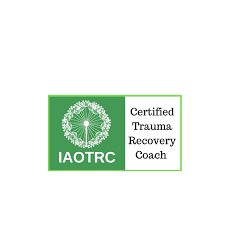Trauma Recovery Coaching: A Holistic Approach to Healing
Trauma can have a profound impact on our lives, affecting our mental and physical health, relationships, and overall well-being. Trauma recovery coaching is a holistic approach to healing that focuses on helping individuals overcome the effects of trauma and move forward in a positive direction.
What is Trauma Recovery Coaching?
Trauma recovery coaching is a form of coaching that is specifically designed to help individuals who have experienced trauma. The coach works with the client to identify the effects of trauma on their life and develop strategies for healing and recovery.
The goal of trauma recovery coaching is to help individuals move beyond their traumatic experiences and develop a sense of empowerment, resilience, and hope for the future. It is based on the belief that everyone has the capacity for healing, growth, and transformation.
How Does Trauma Recovery Coaching Work?
Trauma recovery coaching typically involves a series of one-on-one sessions between the coach and client. The coach will work with the client to identify their specific needs and goals for healing.
The coach may use a variety of techniques and strategies to help the client overcome the effects of trauma. These may include mindfulness practices, relaxation techniques, cognitive-behavioral therapy (CBT), somatic experiencing, hypnotherapy, or other complementary therapies.
The coach will also work with the client to develop coping skills and strategies for dealing with triggers or other challenges that may arise during the healing process.
Benefits of Trauma Recovery Coaching
Trauma recovery coaching offers many benefits for those who have experienced trauma. Some of these benefits include:
– Improved mental health: Trauma recovery coaching can help individuals overcome symptoms such as anxiety, depression, PTSD, or other mental health conditions related to trauma.
– Increased resilience: By developing coping skills and strategies for dealing with triggers or challenges related to trauma, individuals can become more resilient in their daily lives.
– Improved relationships: Trauma can have a significant impact on our ability to form and maintain healthy relationships. Trauma recovery coaching can help individuals improve their communication skills and develop healthier relationships with others.
– Greater sense of empowerment: Trauma can leave individuals feeling helpless or powerless. Trauma recovery coaching helps individuals regain a sense of control over their lives and develop a greater sense of empowerment.
Conclusion
Trauma recovery coaching is a powerful approach to healing that can help individuals overcome the effects of trauma and move forward in a positive direction. By working with a trauma recovery coach, individuals can develop coping skills, strategies, and tools for healing that will serve them well throughout their lives. If you have experienced trauma and are struggling to move forward, consider seeking the support of a trauma recovery coach today.
6 Benefits of Trauma Recovery Coaching: A Personalized Path to Healing and Growth
- Offers an individualized approach to healing from trauma
- Provides a safe, non-judgmental environment for processing traumatic experiences
- Helps individuals identify and process their emotions more effectively
- Encourages self-care and self-compassion practices
- Fosters positive thinking and behavior patterns
- Supports the development of healthier relationships with others
Challenges and Limitations of Trauma Recovery Coaching: A Critical Review
- It can be expensive – Depending on the coach, trauma recovery coaching can be quite costly and may not fit into everyone’s budget.
- Not enough research – There is still a lack of research on the efficacy of trauma recovery coaching, and more studies need to be conducted to understand its effectiveness.
- Limited access – Not all areas have access to qualified trauma recovery coaches, so those in rural or remote locations may not have access to this type of support.
- Stigma – There is still a stigma attached to seeking out mental health services such as trauma recovery coaching which could prevent some from seeking help they need.
Offers an individualized approach to healing from trauma
Trauma recovery coaching is a form of coaching that offers an individualized approach to healing from trauma. This means that the coach works closely with the client to understand their unique experiences and needs, and develops a customized plan for healing and recovery.
Because trauma can affect individuals in different ways, it is important to have an approach that is tailored to each person’s specific needs. Trauma recovery coaching recognizes this and provides personalized support to help individuals overcome the effects of trauma.
An individualized approach to healing from trauma allows the coach to focus on the specific challenges that each client faces. For example, one person may struggle with anxiety and panic attacks, while another may have difficulty sleeping or experience flashbacks. The coach can work with each person to develop strategies for coping with these challenges and moving forward in a positive direction.
By offering an individualized approach, trauma recovery coaching also helps individuals feel seen and heard. Trauma can often leave people feeling isolated or disconnected from others, but working with a coach who understands their experiences can help them feel validated and supported.
Overall, an individualized approach to healing from trauma is essential for helping individuals overcome the effects of trauma and move forward in a positive direction. If you have experienced trauma and are seeking support, consider working with a trauma recovery coach who can provide personalized guidance and support on your journey towards healing.
Provides a safe, non-judgmental environment for processing traumatic experiences
Trauma can be a deeply personal and emotional experience that can leave individuals feeling vulnerable and exposed. One of the key benefits of trauma recovery coaching is that it provides a safe, non-judgmental environment for processing traumatic experiences.
Trauma recovery coaches are trained to create a safe and supportive space for their clients to explore their feelings, thoughts, and experiences related to trauma. They understand the importance of creating an atmosphere of trust and respect, where clients feel comfortable sharing their deepest fears and concerns.
In this safe environment, clients can explore their trauma in a way that feels safe and manageable. They can work through difficult emotions such as fear, anger, or sadness without fear of judgment or criticism.
The non-judgmental nature of trauma recovery coaching also helps clients feel validated and heard. Trauma can be isolating, leaving individuals feeling alone in their experiences. By working with a coach who provides a supportive environment for processing trauma, clients can feel less alone and more understood.
Overall, the safe, non-judgmental environment provided by trauma recovery coaching is essential for helping individuals process traumatic experiences in a healthy way. With the support of a skilled coach who understands the complexities of trauma, clients can begin to heal and move forward in their lives with confidence and resilience.
Helps individuals identify and process their emotions more effectively
Trauma can leave individuals feeling overwhelmed and unable to process their emotions effectively. Trauma recovery coaching is a powerful tool that can help individuals identify and process their emotions more effectively.
The coach works with the client to help them understand how their emotions are connected to their experiences of trauma. By identifying and acknowledging these emotions, individuals can begin to process them in a healthy way.
Trauma recovery coaching provides a safe and supportive environment for individuals to explore their emotions without judgment or shame. The coach helps clients develop strategies for managing difficult emotions such as anger, fear, or sadness.
Through this process, individuals can learn to express themselves more effectively and communicate their needs in healthier ways. They can also develop greater self-awareness and emotional intelligence, which can improve their relationships with others.
Overall, trauma recovery coaching is an effective way for individuals to identify and process their emotions in a safe and supportive environment. By working with a trauma recovery coach, individuals can develop the skills they need to manage difficult emotions and move forward in a positive direction.
Encourages self-care and self-compassion practices
Trauma recovery coaching is a holistic approach to healing that encourages individuals to prioritize self-care and self-compassion practices. This is an important pro of trauma recovery coaching because individuals who have experienced trauma often struggle with feelings of shame, guilt, and self-blame.
Trauma recovery coaching helps individuals develop a greater sense of self-awareness and compassion for themselves. The coach will work with the client to identify their specific needs and develop strategies for self-care that work best for them.
Self-care practices may include things like exercise, meditation, journaling, or spending time in nature. By prioritizing these practices, individuals can improve their mental and physical health, reduce stress levels, and increase their overall sense of well-being.
Self-compassion practices involve treating oneself with kindness and understanding. This can be particularly challenging for individuals who have experienced trauma, as they may have internalized negative beliefs about themselves as a result of their experiences.
Trauma recovery coaching helps individuals challenge these negative beliefs and develop a more positive self-image. Through the practice of self-compassion, individuals can learn to be kinder to themselves and cultivate a greater sense of inner peace.
In conclusion, trauma recovery coaching is an effective approach to healing that encourages individuals to prioritize self-care and self-compassion practices. By developing these important skills, individuals can improve their overall well-being and move forward in a positive direction after experiencing trauma.
Fosters positive thinking and behavior patterns
Trauma recovery coaching is an effective approach to healing that can help individuals overcome the effects of trauma and move forward in a positive direction. One of the key benefits of trauma recovery coaching is that it fosters positive thinking and behavior patterns.
Trauma can often lead to negative thought patterns and behaviors, such as self-doubt, fear, or avoidance. These patterns can be difficult to break without the help of a trained professional.
Trauma recovery coaching helps individuals identify these negative patterns and develop new, more positive ones. This may involve developing coping skills for dealing with triggers or challenges related to trauma or learning how to challenge negative thoughts and beliefs.
By fostering positive thinking and behavior patterns, trauma recovery coaching can help individuals regain a sense of control over their lives and develop greater resilience in the face of adversity. With the support of a trauma recovery coach, individuals can learn how to overcome the effects of trauma and move forward with confidence and hope for the future.
Supports the development of healthier relationships with others
Trauma can have a significant impact on our ability to form and maintain healthy relationships with others. Trauma recovery coaching is a powerful tool that can support the development of healthier relationships.
Trauma recovery coaching helps individuals identify the ways in which their past trauma may be impacting their current relationships. The coach works with the client to develop strategies for improving communication, setting boundaries, and developing trust in relationships.
By working with a trauma recovery coach, individuals can gain a deeper understanding of how their past experiences may be impacting their current relationships. This awareness allows them to make conscious choices about how they interact with others and develop healthier patterns of behavior.
In addition, trauma recovery coaching can help individuals overcome feelings of shame or guilt related to past traumas. This can improve self-esteem and self-worth, making it easier to form healthy relationships based on mutual respect and trust.
Overall, trauma recovery coaching supports the development of healthier relationships by helping individuals heal from past traumas and develop new patterns of behavior that promote positive interactions with others. If you are struggling with relationship issues related to past trauma, consider seeking the support of a trauma recovery coach today.
It can be expensive – Depending on the coach, trauma recovery coaching can be quite costly and may not fit into everyone’s budget.
One of the cons of trauma recovery coaching is that it can be expensive. Depending on the coach and their level of expertise, trauma recovery coaching can be quite costly and may not fit into everyone’s budget.
While the benefits of trauma recovery coaching are numerous, it is important to consider the financial impact before committing to sessions. Some coaches may offer sliding scale fees or payment plans, but not all do.
It is also important to note that insurance may not cover the cost of trauma recovery coaching. This means that individuals may have to pay out-of-pocket for these services.
However, it is important to consider the long-term benefits of trauma recovery coaching when weighing the cost. Investing in one’s mental health and well-being can have a positive impact on all areas of life, including relationships, career, and overall quality of life.
If cost is a concern, individuals may want to consider other forms of support such as group therapy or community resources for trauma survivors. It is also worth researching different coaches and their fees to find one that fits within your budget.
In conclusion, while cost can be a barrier to accessing trauma recovery coaching for some individuals, it is important to weigh the long-term benefits against the short-term costs. With research and planning, individuals can find a coach who fits within their budget and provides effective support in their healing journey.
Not enough research – There is still a lack of research on the efficacy of trauma recovery coaching, and more studies need to be conducted to understand its effectiveness.
Not Enough Research on Trauma Recovery Coaching: A Con to Consider
Trauma recovery coaching is a promising approach to healing that has helped many individuals overcome the effects of trauma. However, one con to consider is the lack of research on its efficacy.
While there have been some studies on the effectiveness of trauma recovery coaching, more research is needed to fully understand its impact. This can make it difficult for individuals and healthcare providers to determine if trauma recovery coaching is the best approach for their specific needs.
Without enough research, it can also be challenging for trauma recovery coaches themselves to understand which techniques and strategies are most effective for their clients. This can lead to a trial-and-error approach that may not always yield the best results.
Despite this con, it’s important to note that there are many experienced and skilled trauma recovery coaches who have helped countless individuals overcome the effects of trauma. While more research is needed, there is still much value in seeking support from a trained professional who can work with you to develop coping skills and strategies for healing.
In conclusion, while the lack of research on trauma recovery coaching is a valid concern, it should not discount the potential benefits of this approach. As more research is conducted in the future, we may gain a better understanding of its effectiveness and how it can best be used to support those who have experienced trauma.
Limited access – Not all areas have access to qualified trauma recovery coaches, so those in rural or remote locations may not have access to this type of support.
One Con of Trauma Recovery Coaching: Limited Access
Trauma recovery coaching can be a powerful tool for healing, but unfortunately, not everyone has access to qualified trauma recovery coaches. This can be particularly challenging for those living in rural or remote locations, where there may be limited access to mental health services.
Without access to trauma recovery coaching, individuals who have experienced trauma may struggle to find the support they need to heal and move forward. They may feel isolated, alone, and unable to access the resources they need to overcome the effects of trauma.
While telehealth services are becoming more widely available, they are not always a viable option for those without reliable internet access or who live in areas with limited technology infrastructure.
This limited access is a significant con of trauma recovery coaching that needs to be addressed. More resources and funding should be directed towards improving mental health services in rural and remote areas so that everyone has access to the support they need.
In conclusion, while trauma recovery coaching can be an effective approach to healing from trauma, it is important to recognize that not everyone has equal access to this type of support. We must work towards improving mental health services in all areas so that everyone has access to the care they need.
Stigma – There is still a stigma attached to seeking out mental health services such as trauma recovery coaching which could prevent some from seeking help they need.
Despite the many benefits of trauma recovery coaching, there is still a significant con that cannot be ignored: stigma. Unfortunately, seeking out mental health services such as trauma recovery coaching can still carry a stigma in some societies or cultures, which may prevent individuals from seeking the help they need.
Stigma can take many forms, including shame, fear of judgment or discrimination, or a belief that seeking help is a sign of weakness. This can be especially true for individuals who have experienced trauma, as they may feel even more vulnerable and exposed.
The stigma attached to seeking out mental health services can be particularly damaging for those who have experienced trauma. Trauma can already leave individuals feeling isolated and disconnected from others. The added burden of stigma can make it even harder for them to reach out for help and find the support they need to heal.
It’s important to recognize that seeking help is a sign of strength, not weakness. It takes courage to acknowledge that we need support and take steps towards healing. For those who are struggling with the effects of trauma but are hesitant to seek out help due to stigma, it’s essential to remember that there is nothing wrong with asking for support.
Trauma recovery coaching provides a safe and supportive environment for individuals to heal from their traumatic experiences. It offers tools and strategies for coping with triggers and challenges related to trauma and helps individuals develop resilience, empowerment, and hope for the future.
While there may still be a stigma attached to seeking out mental health services such as trauma recovery coaching in some societies or cultures, it’s important not to let this prevent us from getting the help we need. By breaking down the barriers of stigma surrounding mental health services, we can create a world where everyone feels supported in their journey towards healing and well-being.




